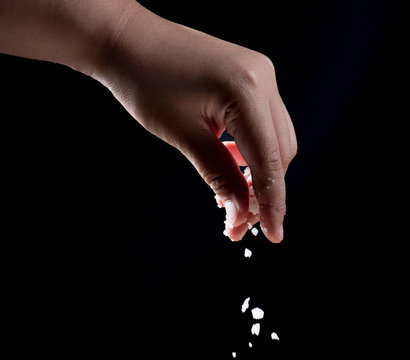By: Maria-Paula
A recent ruling by the US Supreme Court passed that those convicted of possessing small amounts of crack cocaine are prohibited from seeking shorter sentences.
Possession of cocaine, a banned substance in all states in the USA, is punished differently from jurisdiction to jurisdiction. Under Code of Virginia § 54.1-3448 which is Virginia’s law, cocaine, opium, codeine, and oxycodone are listed as Schedule II banned substances.
In Virginia, to have a small amount of a controlled substance even without any previous criminal record, either in hand or in your pocket and attaining no proper prescription is a serious criminal offense. Cocaine possession is a felony punishable by jail time in the state.
Apart from partially being accepted for medical use, drugs classified as Schedule II agents in Virginia are seen to having a sizable likelihood for abuse and dependence. Therefore, being arrested and charged with unlawful possession of a Schedule II banned substance like cocaine is a Class 5 felony punishable by a $2,500 fine or/and between one and ten years imprisonment.
A recent ruling by the Supreme Court prompted activists complains that the judgment is another blow to minority defendants who were condemned to lengthy prison sentences in the past.
Congress passed laws in the 1980s, that mandated anyone convicted for having small amounts of crack cocaine to face the same length of sentence as another caught with large amounts of powder cocaine.
It is alleged that people of color and Latinos found in possession of small amounts of crack were sentenced longer than White suspects with power cocaine.
Tremaine Powell who lives in Alexandria Va. who was released recently after a 15-year-to-life sentence for possession of crack cocaine said, “This is still White America, and the Supreme Court reflects this ‘White privilege’ mindset,”
“I’m on probation for the rest of my life. Some White Wall Street executive caught with zip-lock bags full of cocaine only gets probation.” Powell lamented.
Congress passed the First Step Act in December of 2018. This law was viewed as a measure to correct the injustice tied to crack cocaine sentences and other criminal activity that should not lead to long prison terms.
Tarahrick Terry, a Ft. Lauder-dale, Florida resident, who served a little over 15 years for possessing less than 4 grams of crack cocaine, equivalent to four paper clips brought his case to the Supreme Court. He sought pardon from his sentence under the First Step Act after a lower court ruled that the law did not consider low-level offenses.
A report by the Red Restorative Justice Program, a nonprofit organization, highlighted that the goal of the First Step Act law was to “offer worthy prisoners the opportunity to get a shortened sentence. This would enhance positive behavior and job training while giving juries and judges the power intended by the Constitution to grant them in sentencing.
A Pinch of Crack Cocaine Will Earn You Maximum Sentence



